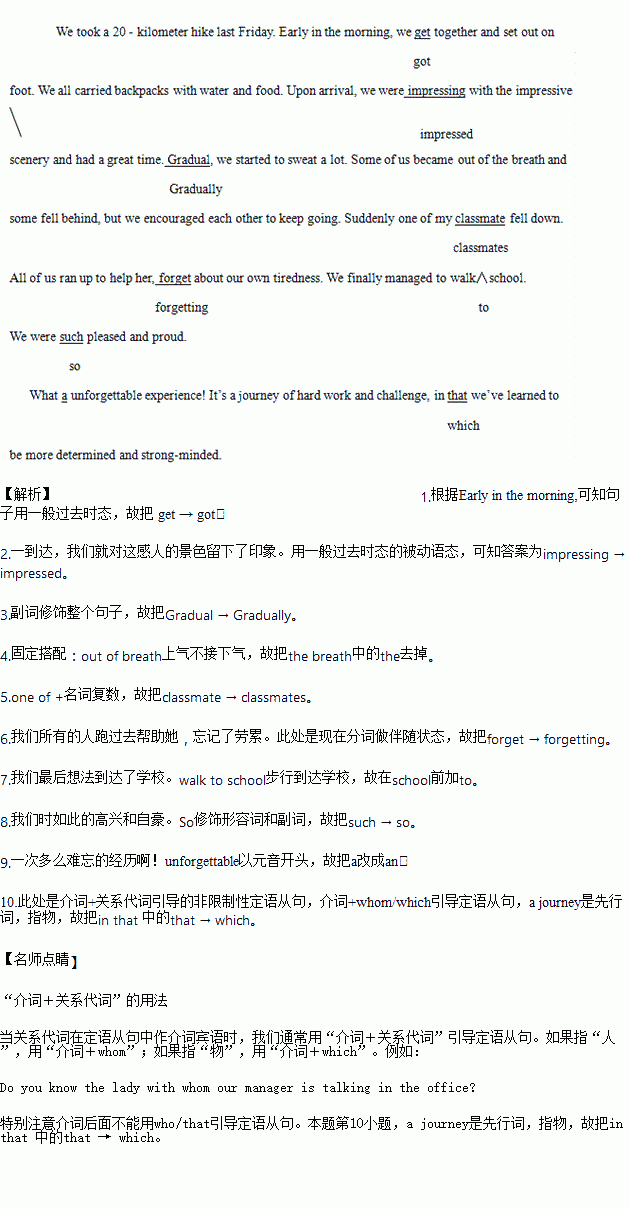题目内容
假定英语课上老师要求同桌中间交换修改作文,请你修改你同桌写的以下作文。文中共有10处语言错误,每句中最多有两处,每处错误仅涉及一个单词的增加、删除或修改。
增加:把缺词处叫个娄子符号(∧),并在其下面写出该加的词。
删除: 把多余的词用斜线(\)划掉。
修改:在错的词下划一横线,并在该词下面写出修改后的词。
注意:1. 每处错误及其修改均仅限一词;
2. 只允许修改10处,多者(从第11处起)不计分。
We took a 20 - kilometer hike last Friday. Early in the morning, we get together and set out on foot. We all carried backpacks with water and food. Upon arrival, we were impressing with the impressive scenery and had a great time. Gradual, we started to sweat a lot. Some of us became out of the breath and some fell behind, but we encouraged each other to keep going. Suddenly one of my classmate fell down. All of us ran up to help her, forget about our own tiredness. We finally managed to walk school. We were such pleased and proud.
What a unforgettable experience! It’s a journey of hard work and challenge, in that we’ve learned to be more determined and strong-minded.


 e extinguisher and the fire 6.(put) out.
e extinguisher and the fire 6.(put) out.